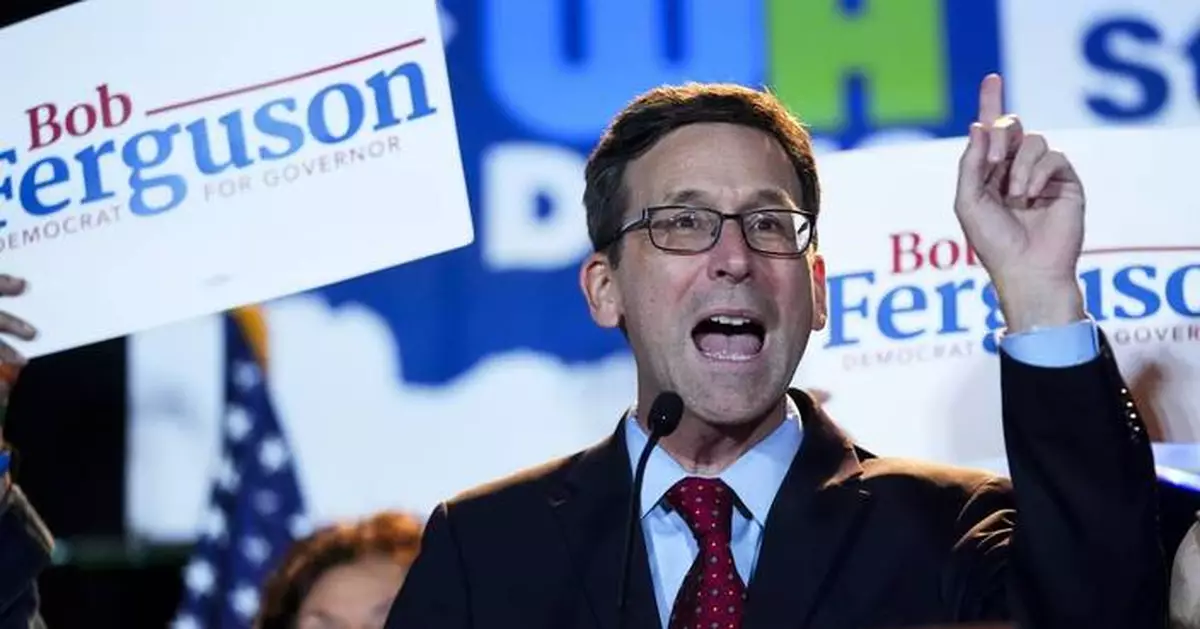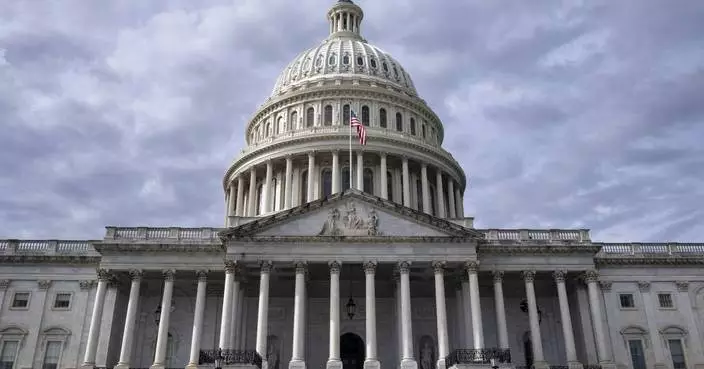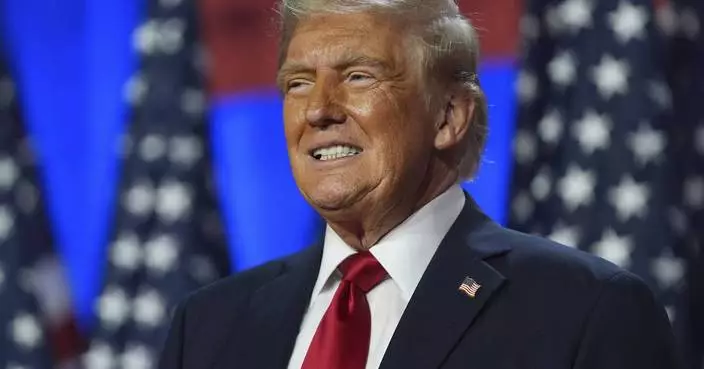Democratic governors and state attorneys general are dusting off the playbooks from their offices' pushback against President-elect Donald Trump's policies, but they know it could be a harder battle in his second time in office.
Trump's campaign promises included mass deportations of people in the country illegally, and his history includes rolling back environmental regulations and setting the stage for state abortion bans by nominating three new Supreme Court justices who helped overturn Roe v. Wade.
All of that is putting liberals on edge — and believing that an organized resistance is necessary.
Democratic state officials are positioning themselves to carry it out.
California Gov. Gavin Newsom called last week for a special legislative session to get a jump on the work of making laws “Trump-proof” in the nation's most populous state.
The Democratic governors of Colorado and Illinois announced a nationwide effort Wednesday that they're calling Governors Safeguarding Democracy.
Here's a look at how states worked against Trump policies last time and how it might go in his second term.
Over the past two decades, challenging policies of the opposing party's president has become a major part of the job of state attorneys general.
It peaked the first time Trump was in office, with 160 multistate filings against the administration in four years, according to a tally kept by Marquette University political scientist Paul Nolette.
That was twice as many filings as President Barack Obama's administration faced in twice the time, almost all from GOP attorneys general. Republicans have filed 142 against President Joe Biden's administration.
Multistate legal actions against Trump's policies were successful 94 times.
Some of the victories were fleeting. For instance, Democrats initially persuaded courts to block the president's ban on travelers from several mostly Muslim countries, but the U.S. Supreme Court eventually upheld it.
Other wins were on relatively mundane topics. In one case, a filing to push regulators to stop delaying rules for ceiling fan efficiency prompted the U.S. Department of Energy to do so.
There are also roles for governors and legislators. During the first Trump presidency, for instance, California and some other states adopted laws limiting how much local authorities could help federal immigration officials.
On the flip side, Trump could need help from GOP officials to carry out his policies. For instance, he might ask governors to activate National Guards to carry out deportations he has said would begin the day he is sworn in.
Bob Ferguson, Washington's Democratic governor-elect and current attorney general, said at a news conference last week that offices of Democratic attorneys general have been in touch for months to talk about how to push back against Trump's policies.
He said it was relatively easy to defeat Trump's administration in court early in the Republican's first term.
“They were often sloppy in the way they rolled out their executive actions. And that provided openings for us to prevail in court,” Ferguson said. “This time around, I anticipate that we will see less of that.”
James Tierney, a former Maine attorney general who teaches a Harvard Law School class on the office, said, “What's different is a much higher level of sophistication on all sides."
Ferguson will be one of a handful of people who served as attorney general at the start of Trump's first term to be governor in his second. None of the Democratic attorneys general or governors from 2017 will be in the same job by the time Trump takes office on Jan. 20.
The courts have also become more conservative since Trump took office — largely because of his efforts. Trump appointed 245 judges to federal courts, including three to the U.S. Supreme Court.
Marquette's Nolette said Democratic attorneys general will be involved in the “entire life cycle” of policies.
They'll have staffers submit comments opposing proposed regulations that government agencies develop to enforce and interpret laws — and then sue if and when those regulations take effect.
The offices are likely to be aggressive in challenging new federal laws as unconstitutional. Nolette said the most fruitful action might be when they go to court over executive actions — something he said could especially come into play with immigration actions.
“By their nature, they tend to be legally vulnerable,” he said.
Nolette said there are other ways for attorneys general to exert power over federal policy besides challenging federal actions.
One of those is through suing and reaching settlements with companies. States have used that approach to force the drug industry to change practices around opioids, for instance, without any kind of federal law or executive action.
And while states cannot enter into treaties, they can do things like sign on to international climate agreements.
If the federal government rolls back enforcement in areas such as environmental laws, states could also ramp up enforcement of their similar laws.
The Democratic officials leading the charge against Trump could get time in the spotlight that might help them land future political jobs.
California Attorney General Rob Bonta is likely to be at the center of action this time.
Several other Democratic officials, including Attorneys General Letitia James, of New York, and Josh Kaul, of Wisconsin — whose voters favored Trump in 2016 and 2024 — have held news conferences or put out news releases on their commitment to fighting Trump policies.
Illinois Gov. J.B. Pritzker and Colorado Gov. Jared Polis announced a new effort Wednesday called Governors Safeguarding Democracy, funded by donations at aimed at helping states protect the rule of law — something some Democrats have said will be at risk with Trump as president.
“We founded GSD because we know that simple hope alone won’t save our democracy,” Polis said in a conference call with reporters.
Associated Press writers Scott Bauer in Madison, Wisconsin, and John O'Connor in Springfield, Illinois, contributed to this report.

FILE - California Gov. Gavin Newsom speaks to reporters in the spin room before a presidential debate between Republican presidential nominee former President Donald Trump and Democratic presidential nominee Vice President Kamala Harris, Tuesday, Sept. 10, 2024, in Philadelphia. (AP Photo/Matt Rourke)
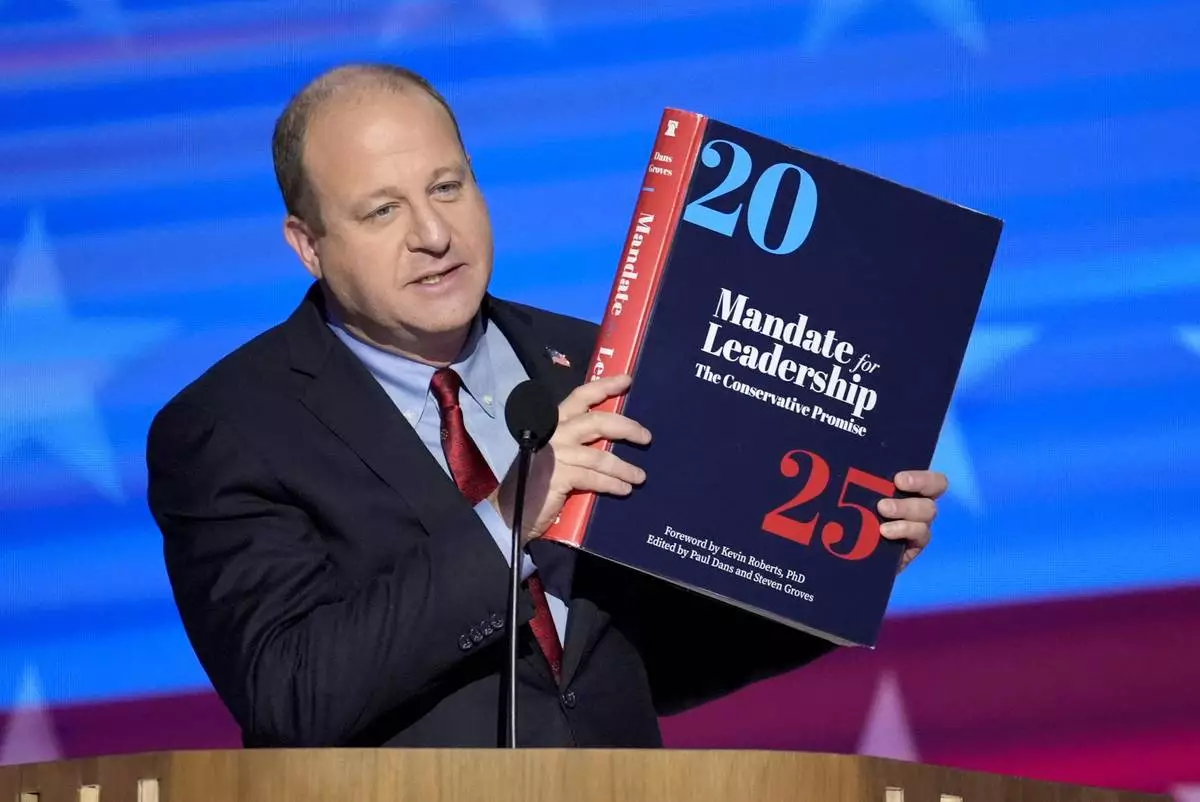
FILE - Colorado Gov. Jared Polis holds up a copy of Project 2025 as he speaks during the Democratic National Convention Aug. 21, 2024, in Chicago. (AP Photo/J. Scott Applewhite, File)
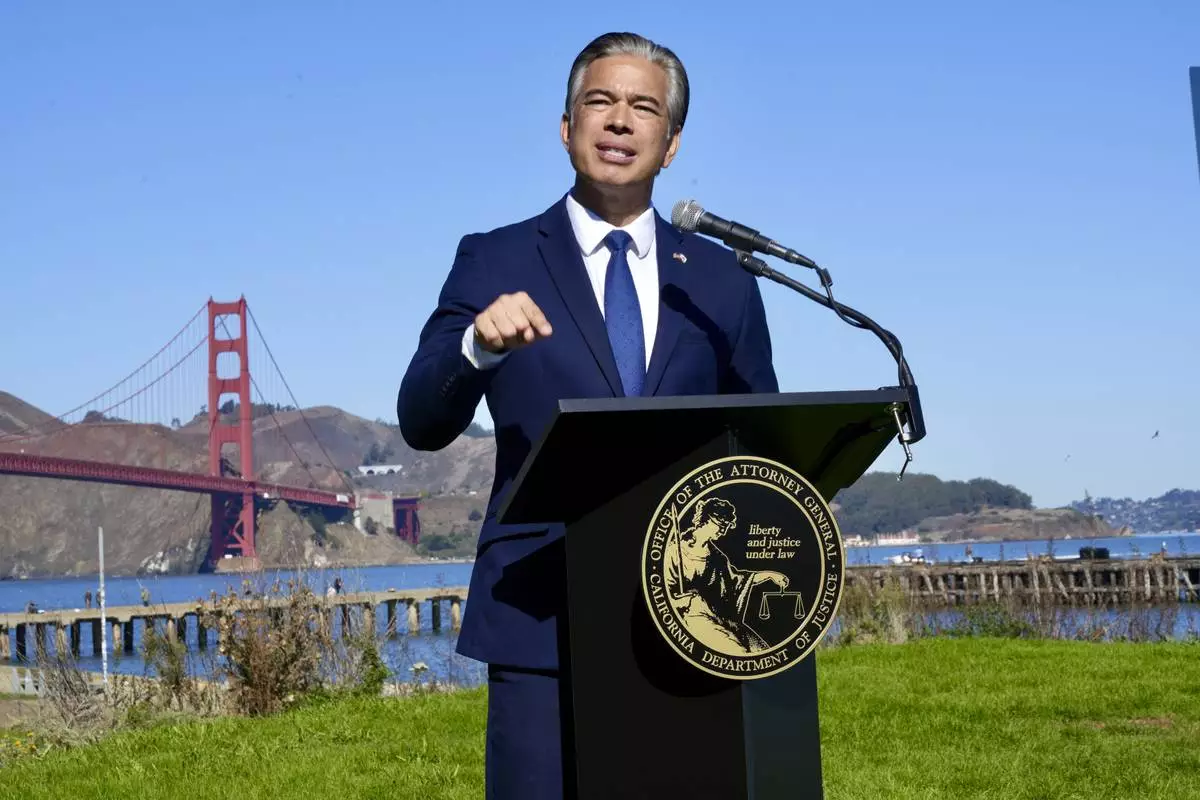
FILE - California Attorney General Rob Bonta speaks at a news conference in front of the Golden Gate Bridge in San Francisco on Thursday, Nov. 7, 2024. (AP Photo/Terry Chea, File)

FILE - New York Attorney General Letitia James speaks Feb. 16, 2024, in New York. (AP Photo/Bebeto Matthews, File)
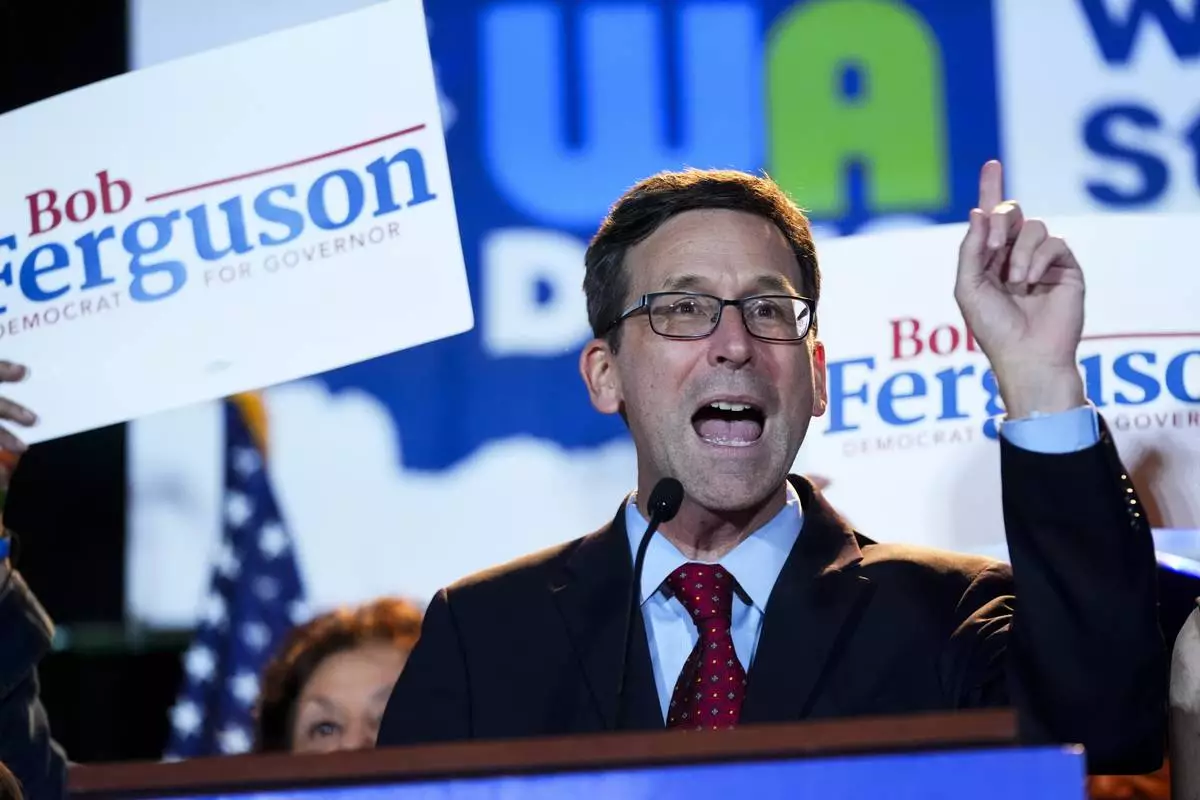
FILE - Democratic Washington gubernatorial candidate Attorney General Bob Ferguson speaks to supporters at the Washington State Democrats election night party on Election Day, Tuesday, Nov. 5, 2024, in Seattle. (AP Photo/Lindsey Wasson, File)


